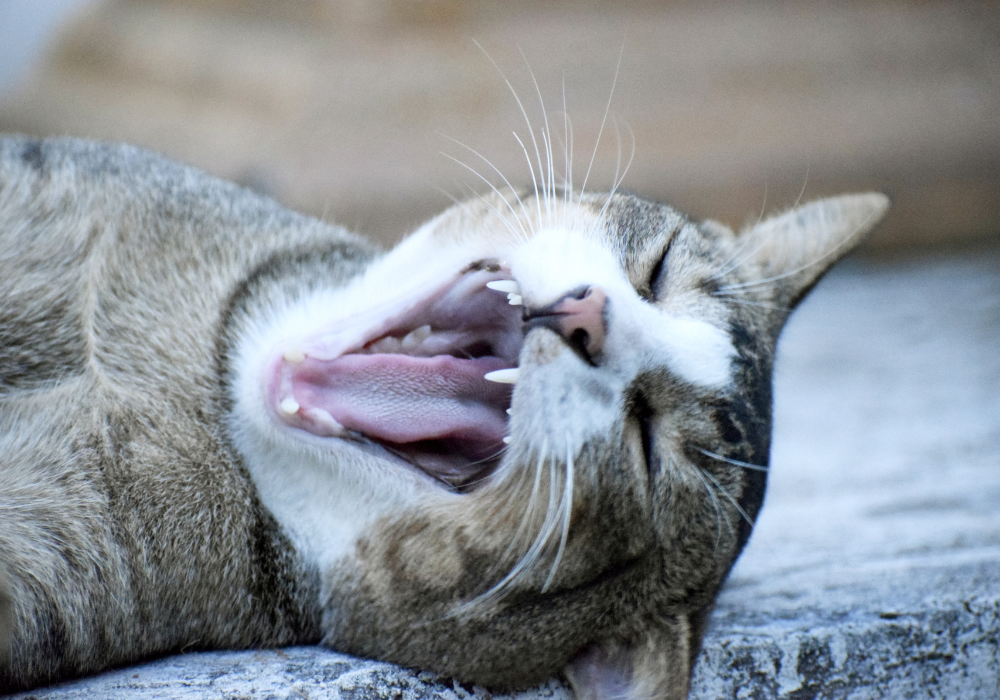Understanding Stomatitis in Cats: Symptoms, Causes, and Treatments

Being a cat owner can be rewarding, but it also comes with its challenges, especially when it comes to your feline friend’s health. Cats are notoriously secretive creatures, often hiding their pain or discomfort until the situation becomes critical. One common health issue that cat owners may encounter is dental problems, particularly a condition known as stomatitis. In this article, we will explore what stomatitis is, how to recognize its symptoms, and what treatment options are available.
What is Stomatitis in Cats?
Stomatitis in cats is a medical condition characterized by severe inflammation of the mouth and gums. This inflammation can manifest as reddened gums that are swollen and painful. In some extreme cases, stomatitis may even lead to bleeding in the mouth. The impact of this condition can significantly affect a cat’s quality of life, making it essential for owners to be vigilant.
What Causes Stomatitis in Cats?
The exact causes of stomatitis in cats are not definitively identified but multiple factors are suspected to contribute to this painful condition. One of the primary suspected causes is viral infections, with many cats diagnosed with stomatitis also having concurrent viral infections, particularly one known as ‘calicivirus.’ Additionally, plaque and calculus buildup on the teeth are thought to play a significant role in the development of stomatitis.
What Are the Symptoms of Stomatitis in Cats?
Recognizing the symptoms of stomatitis is crucial for prompt treatment. Here are some signs to watch for:
1. Inflamed and Bleeding Gums
One of the most noticeable signs of feline stomatitis is severely inflamed gums. When the gums become inflamed, they often appear red and swollen. If untreated, the gums may also bleed, and inflammation can extend to other areas of the mouth, including the back of the throat, where ulcers may form.
2. Weight Loss
Rapid weight loss can indicate that your cat is in pain due to stomatitis. The discomfort caused by inflammation may lead to difficulty eating, causing your cat to eat very slowly or stop eating altogether. You might notice your cat eagerly approaching their food bowl but then struggling to consume the food, especially if it’s dry rather than wet.
3. Excessive Drooling
Cats typically do not drool, so excessive drooling can be a clear sign that something is wrong. In the case of stomatitis, drooling often indicates pain or discomfort in the mouth.
4. Lack of Grooming
Cats are known for their meticulous grooming habits. However, those suffering from stomatitis may groom themselves less frequently due to pain when using their mouths. This can result in a matted coat, which may be a visible sign of dental distress.
5. Bad Breath
While bad breath can be common in cats, the foul smell associated with stomatitis is usually more pronounced and indicative of a dental health issue.
Treatment for Stomatitis in Cats
If you suspect your cat is suffering from stomatitis, it’s important to consult our doctors at Acacia Pet Clinic for a thorough examination and appropriate treatment. Here are some common treatment options:
1. Antibiotics
Your veterinarian may prescribe antibiotics to help manage flare-ups and control any secondary bacterial infections that might worsen inflammation and pain. While antibiotics can provide relief, they are generally not recommended for long-term use.
2. Steroids
In severe cases of stomatitis, steroids may be used to regain control during a flare-up. These medications can help reduce inflammation and alleviate pain.
3. Nonsteroidal Anti-Inflammatory Drugs
Nonsteroidal anti-inflammatory drugs (NSAIDs) are commonly used to reduce both inflammation and pain associated with stomatitis.
4. Tooth Removal
In advanced cases of stomatitis, it may be necessary to remove affected teeth to alleviate inflammation and reduce bacterial presence in the mouth. In severe situations, multiple tooth extractions may be required to manage the condition effectively.
Conclusion
Being aware of your cat’s dental health is crucial for their overall well-being. Stomatitis is a painful condition that can severely impact your cat’s quality of life, but with timely intervention, it can be managed effectively. If you notice any of the symptoms discussed, don’t hesitate to consult our doctors at Acacia Pet Clinic for an evaluation and tailored treatment plan.
If you need more help or have any questions, call us at Acacia Pet Clinic, (408) 264-6354, 4486 Pearl Ave, San Jose, CA 95136, Hours: Monday-Friday: 8:00 am – 5:00 pm.

